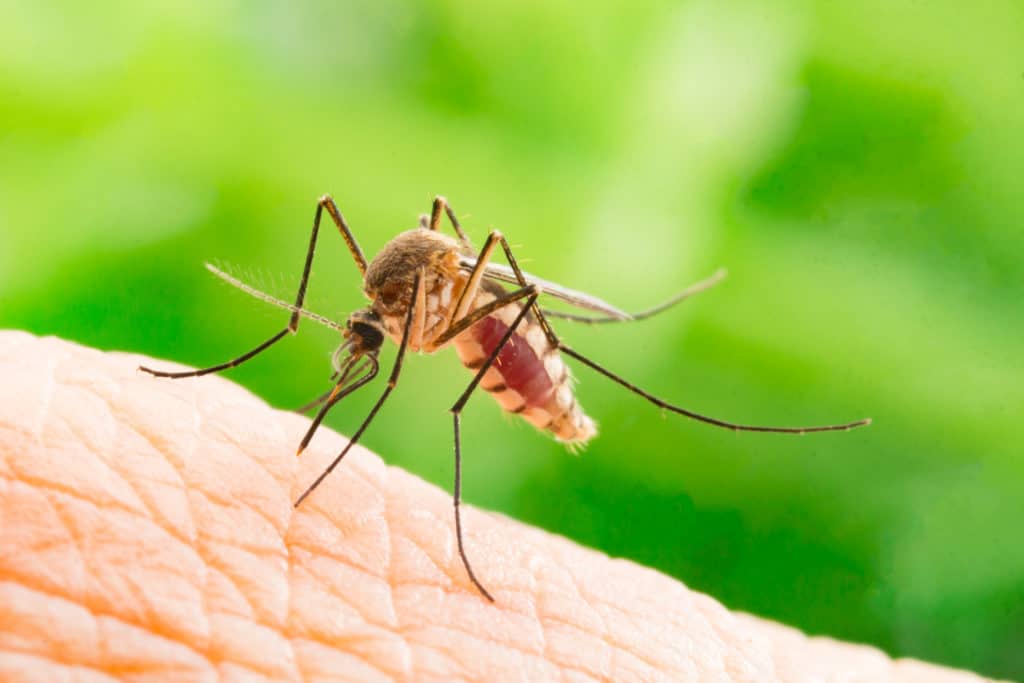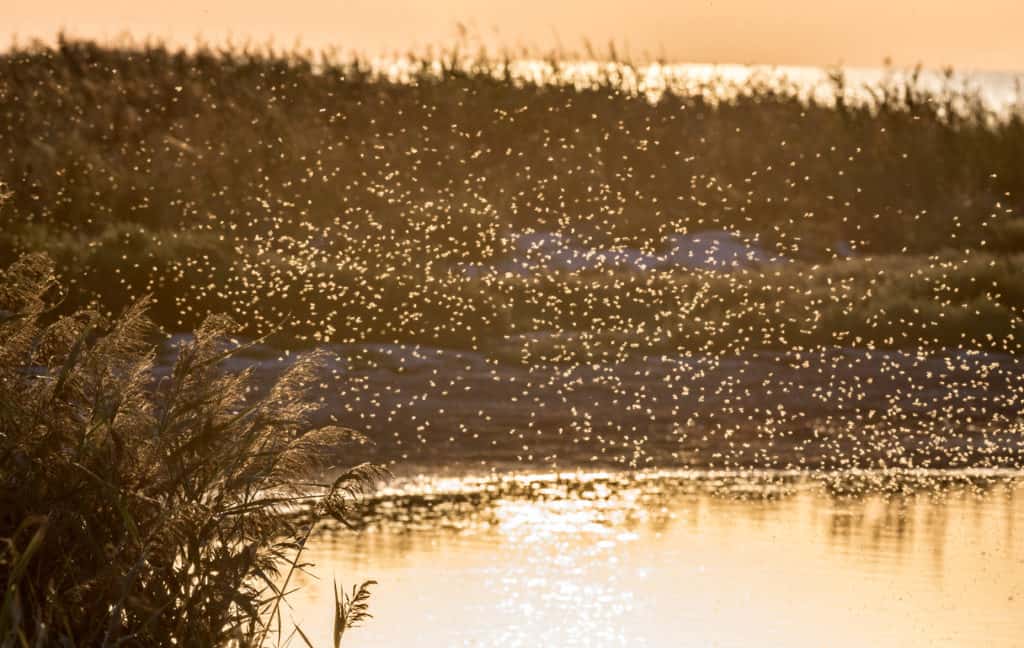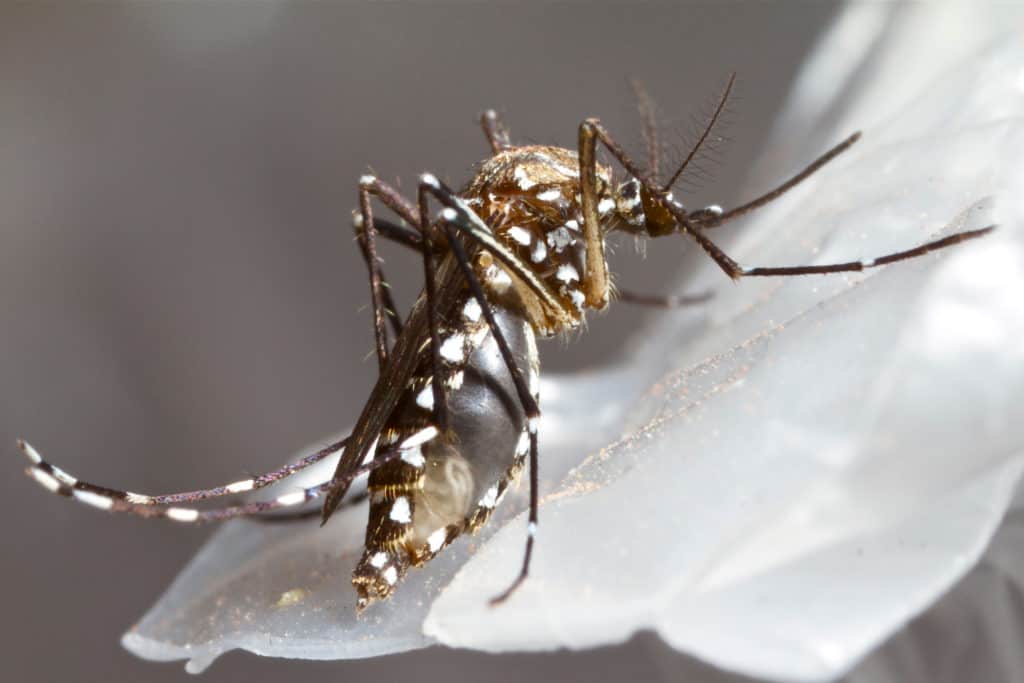Why Do Mosquitos Like Our Blood?
Why Do Mosquitos Like Our Blood?
Not All Mosquitos Bite
Yes. Not all mosquitos have a taste for human blood. There are roughly 3,500 different species of mosquitos alive today. Of that vast amount of species, only a few target humans. Also, out of the species that do target humans, it’s actually only the females that seek out sanguine meals, while the males tend to dine exclusively on nectar from flowers.
While it may seem odd that one gender requires blood, while the other can survive solely on nectar, the blood meals actually have less to do with dietary preferences and everything to do with procreation. In order to produce their eggs, female mosquitos require a rather large amount of both protein and iron, which are both present in blood in high doses. Even so, we are still often not their first choice for a sanguine meal, yet they still bite us. Why is that and what does that mean for the future?

Mosquitos Study
In the United States, the three most common species of mosquito that bite humans are the Aedes, Anopheles, and Culex. While it may seem inconsequential to be aware of these different breeds, the importance lies in the fact that each species is known for carrying and transmitting different diseases. Due to its tendency to spread Yellow Fever, Zika virus, and Chikungunya virus, the Aedes aegypti was selected for a new study focused on the reasons behind mosquitos’ attractions to humans.
The study observed the species in sub-Saharan Africa, where it was noted that their attraction to humans actually varied drastically. At times, the mosquitos seemed extremely draw to humans, attacking in swarms, when at other times, human hosts were consistently ignored in favor of other animals in the area. In response to this, the researchers began to look into both the locations and conditions in which the drastic variations were occurring. These explorations surprisingly yielded two clear factors…

When Mosquitos Attack
Noah Rose, a Princeton University researcher on the study, explains that they found that, “mosquitos living near dense human populations in cities such as Kumasi, Ghana, or Ouagadougou, Burkina Faso, showed increased willingness to bite human hosts.” Mosquitos were collected in specialized traps across 27 locations, then their populations were compared by location, yielding these results.
“But they only evolve a strong preference for human hosts in places with intense dry seasons,” Rose adds, “- in particular, in the Sahel region, where rainfall is concentrated in just a couple months out of the year. We think this is because mosquitoes in these climates are especially depended on humans and human water storage for their life cycle.” As many species of mosquitos in Africa do not bite humans this finding is crucial to our understanding of both how and why the Aedes aegypti evolved to feed on human blood.

What Does This Mean for the Future?
While the study is still ongoing, the researchers have managed to formulate a series of predictions regarding the future of human-biting mosquitos. As humanity increasingly expands its urban influence across the globe and populations are booming in concentrated areas, we have unknowingly fulfilled one of the prerequisites for attracting more mosquito bites. Due to this increased urbanization, experts are predicting an eventual increase in human-biting mosquitos as a species as well as a possible trend towards preferring human blood more consistently.
But don’t fret! No matter how tough the onslaught of mosquitos may become, we will always have your back with your home and business mosquito-control!

Citations
How Mosquitos Got Their Taste for Human Blood – What it Means for the Future (2020) SciTech Daily. Cell Press. Available at: https://scitechdaily.com/how-mosquitoes-got-their-taste-for-human-blood-what-it-means-for-the-future/ (Accessed: September 2020).
Mosquito-Borne Diseases (2016) Centers for Disease Control and Prevention. National Institute for Occupational Safety and Health. Available at: https://www.cdc.gov/niosh/topics/outdoor/mosquito-borne/default.html (Accessed: April 2020).

